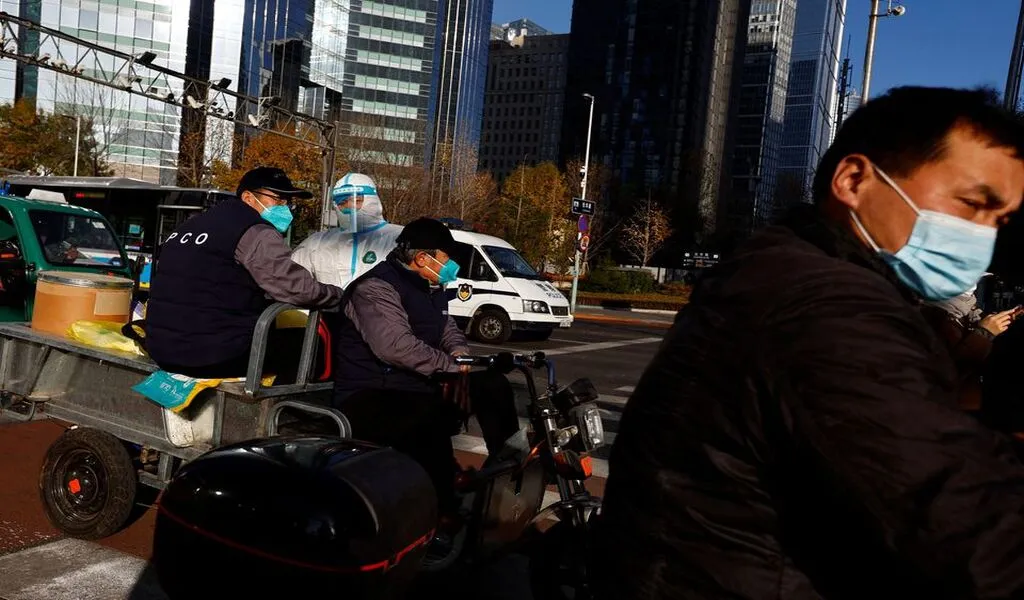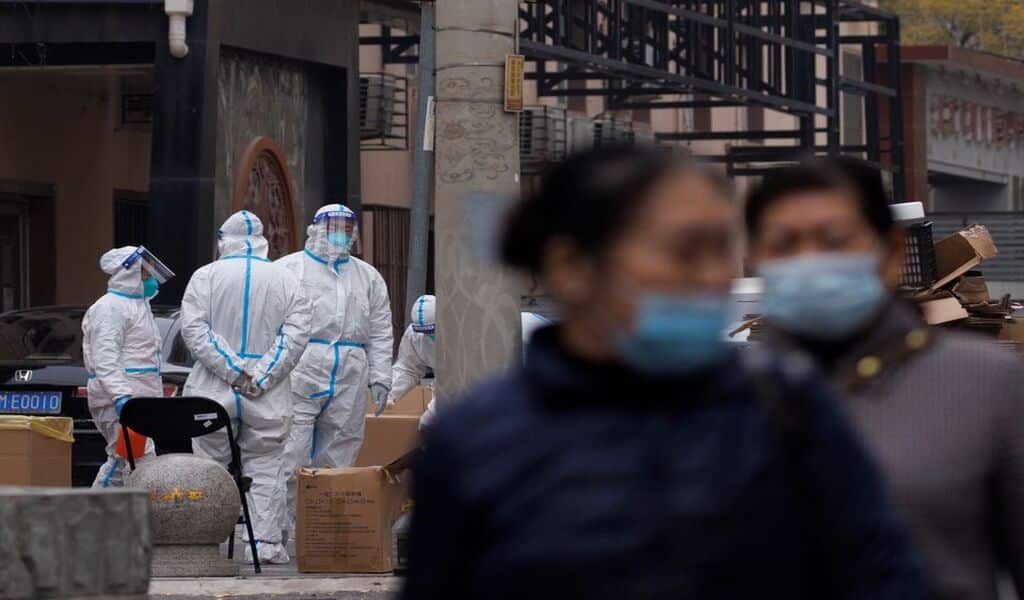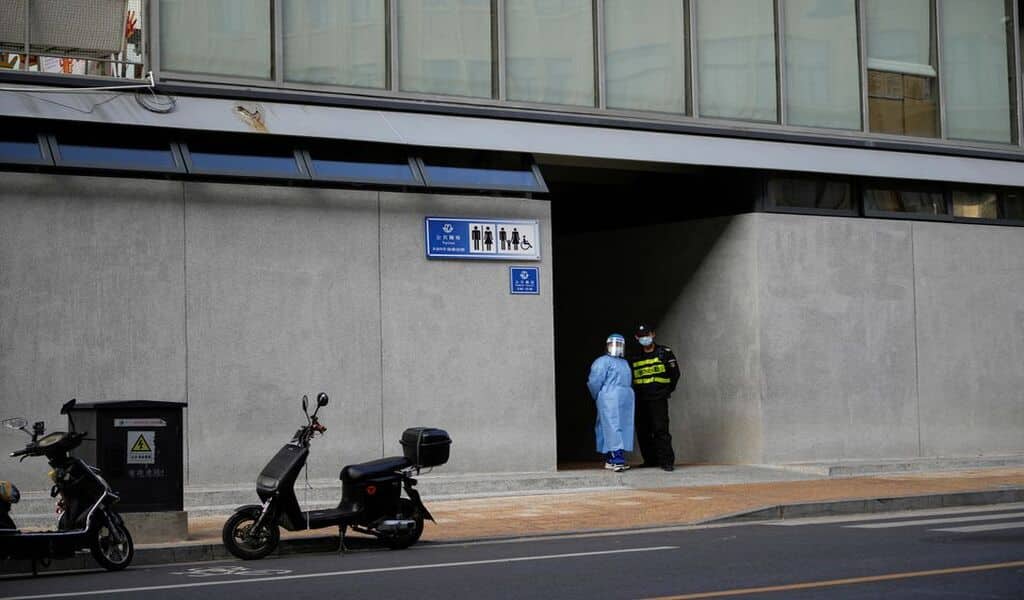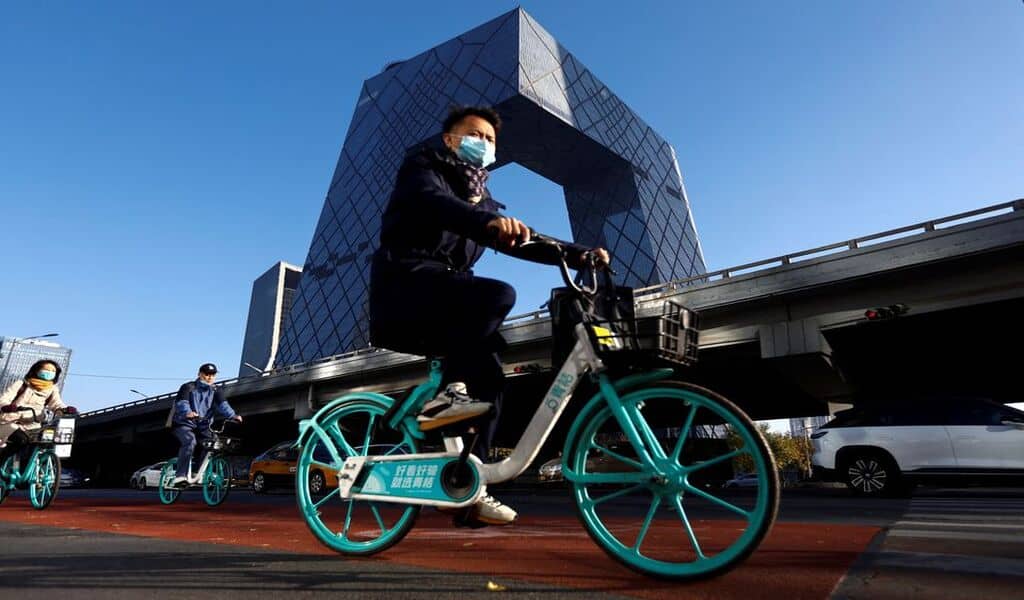Covid-19
COVID Cases In China Rise, Entry Restrictions Tightened In Beijing

(CTN NEWS) – On Monday, the Chinese capital issued a serious COVID-19 pandemic warning, closing businesses and schools in affected areas and tightening entry regulations as infection rates increased both locally and nationally.
From Zhengzhou in the centre of Henan Province to Chongqing in the southwest, China is battling several COVID-19 flare-ups.
On Sunday, it reported 26,824 new local cases, which was very close to the daily infection peak in April for the nation.
Additionally, it noted two fatalities in Beijing, up from just one on Saturday — the country’s first since late May.
In order to contain the largest recent outbreak in China, Guangzhou, a southern city of over 19 million people, imposed a five-day lockdown on Baiyun, its most populous area.
Additionally, it closed nightclubs and theatres in the city’s central business district and suspended dine-in services.
China’s resolve to adhere to changes it has made to its zero-COVID policy, which calls for cities to be more targeted in their clampdown measures.
And steer clear of widespread lockdowns and testing that have stifled the economy and irritated residents, is being put to the test by the most recent wave.
On Monday, Asian stock markets and oil prices fell as a result of risk aversion, which helped Treasuries and the dollar. Investors were worried about the economic effects of the worsening COVID crisis in China.
Beijing recorded 316 additional cases for the first 15 hours of Monday after reporting 962 new illnesses on Sunday, an increase from 621 the day before.
According to city officials, visitors to the capital from other parts of China must go through three days of COVID testing before they are allowed to leave their homes or accommodations.
Liu Xiaofeng, the deputy director of Beijing’s municipal Center for Disease Control and Preventive, stated at a media conference that:
“the city is currently dealing with its most complicated and serious prevention and control scenario since the coronavirus outbreak.”
‘YOU’RE UNABLE TO GO ANYWHERE’
The 3.5 million residents of Beijing’s huge Chaoyang district, which also houses embassies and office buildings, were told to stay at home, and schools went online.
The district’s stores, save from those that sold groceries, appeared to be mostly closed, and the streets were abnormally quiet.
Except for one or two employees who were crowded at entranceways around little tables with “takeout only” signs, all restaurants were deserted.
“You have nowhere to go. Everything is shut. Customers are also unable to enter. How can you help? You have no options “explained 32-year-old salesman for the medical sector Jia Xi.
Staff members at building entrances rigorously inspected mobile health apps with the now-familiar “Scan the code” order.
CHANGE OF STRATEGY
Last week, routine community COVID-19 testing was discontinued in a number of Chinese cities, including Shijiazhuang in the north, which sparked intense rumours that it would serve as a test site for policy liberalisation.
However, when additional local cases reached 641, Shijiazhuang declared late on Sunday that it will perform mass testing over the course of the following five days in six of its eight districts.
Additionally, it forced some institutions to stop offering in-person instruction and encouraged locals to shop online.
The curbs in Shijiazhuang were among the most popular subjects on Weibo, and one well-known comment on there stated, “They lasted a week.”
The People’s Daily, the official publication of the Communist Party in power in China, published an article on Monday reiterating the necessity of identifying infections as soon as possible while cautioning against using a “one-size-fits-all” strategy.
This is the newspaper’s eighth such article since China announced its 20 modified measures on November 11.
HOPE AND ADVICE
Investor expectations of a more significant easing have been raised as a result of China’s recent efforts to make its COVID-19 limitations more targeted.
Despite China facing its first winter fighting the highly transmissible Omicron form.
The government claims that President Xi Jinping’s famous zero-COVID policy saves lives and is important to prevent the healthcare system from being overburdened.
Yet many observers anticipate such a transition to start only in March or April.
Experts contend that in a nation where the disease is still widely feared, a full reopening calls for a significant vaccination drive and a shift in messaging.
Authorities claim they are developing a vaccination programme and planning to expand hospital capacity as well as fever clinics to screen patients.
Oxford Economics stated that because elderly vaccination rates are currently quite low, it only expects an exit from zero-COVID in the second half of 2023.
In a report released on Monday, it stated, “From an epidemiological and political standpoint, we do not think the country is ready to open up yet.”
RELATED CTN NEWS:
China Reports 24,473 New COVID Cases, Beijing Lockdown Continues




















![Play Online Blackjack In Australia [2024]: Top 10 Online Australian Blackjack Sites 25 Play Online Blackjack in Australia [2024]: Top 10 Online Australian Blackjack Sites](https://www.chiangraitimes.com/wp-content/uploads/2024/03/word-image-303235-1-80x80.jpeg)












